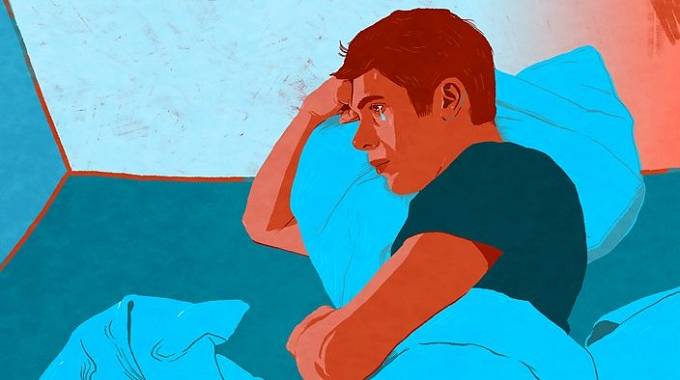Increase of middle-aged patients with erectile dysfunction

Dr Tatenda Simango
I HOPE you are all in good health. Covid-19 is still with us but I feel the graph is starting to flatten thanks to the responsible sacrifice we have all taken during this lockdown, there is light at the end of the tunnel.
This past week we had an increase of middle-aged patients coming for treatment for erectile dysfunction and I thought this will be a good discussion point. It is a delicate topic that can rock marriages and can even fuel domestic violence, infidelity and at times end up in divorce.
We shall dissect this topic over two weeks so that we can help each other. Erectile dysfunction happens when a man has ongoing problems getting and keeping an erection. Without treatment, it can make sex difficult. One gets an erection when blood fills two chambers in the shaft of the penis known as the corpora cavernosa.
This causes your penis to expand and stiffen, much like a balloon when filled with water. Impulses from the brain and genital nerves start the process. Anything that blocks these impulses or restricts blood flow to the penis can cause erectile dysfunction.
Symptoms of erectile dysfunction include:
- Erections that are too soft for sex.
- Erections that don’t last long enough for sex.
- An inability to get an erection.
Causes include:
- Medication side effects,
- Cardiovascular disease,
- High blood pressure,
- Neurological disease,
- Kidney disease,
- Diabetes,
- Obesity,
- Smoking,
- Prostate-related treatment and surgeries,
Long-distance bicycle riders can experience temporary impotence. Repeated pressure on the buttocks and genitals can affect the function of the nerves. Research suggests that avid bikers are more likely to get erectile dysfunction than other athletes. Some bicycle seats put pressure on the perineum, an area between the anus and scrotum full of arteries and nerves vital to sexual arousal. If you bike for many hours each week, get a seat designed to protect this area,
- Depression and anxiety are associated with increased risk for impotence. Depression is a feeling of sadness, loss of hope, or helplessness. Fatigue related to depression can also cause impotence,
- Performance anxiety can also cause impotence. If you haven’t been able to achieve an erection in the past, you may fear you won’t be able to achieve an erection in the future. Stress, depression, low self-esteem and performance anxiety can short-circuit the process that leads to an erection,
- Extramarital affairs,
- Erectile dysfunction becomes more common as you get older,
- Heavy alcohol drinking.
The following are drugs that have been commonly found to affect sexual performance. If you are taking any of these it is important to discuss with your doctor on how best to manage the condition, do not just stop taking your medication:
- Alpha-adrenergic blockers, including tamsulosin, beta-blockers, heart-disease/beta-blockers such as carvedilol, cancer chemotherapy medications such as cimetidine, central nervous system (CNS) depressants such as alprazolam and codeine, CNS stimulants such as cocaine and amphetamines,
- diuretics such as furosemide and spironolactone· selective serotonin re-uptake inhibitors (SSRIs) , such as fluoxetine and paroxetine.
Neurological disorders associated with impotence include:
- stroke, temporal lobe epilepsy, brain or spinal tumours, Alzheimer’s disease, Parkinson’s disease and multiple sclerosis (MS).
When one has developed erectile dysfunction, investigations should be done to try and find the cause of the problem. This will include a detailed history of the symptoms and a stress test. Blood cell counts, blood sugar levels, cholesterol levels, and liver tests can reveal medical conditions that play a role in erectile dysfunction. The patient could also get checked for cardiovascular disease. Ultrasound scan of the groin can be helpful to rule out any changes in blood to the penis and scrotum.
Prevention pointer that every man should start implementing from youth include:
- Exercise and maintain a healthy weight. A trim waistline is one good defence — a man with a 42-inch waist is 50 percent more likely to have erectile dysfunction than one with a 32-inch waist. Losing weight can help fight erectile dysfunction, so getting to a healthy weight and staying there is another good strategy for avoiding or fixing erectile dysfunction. Obesity raises risks for vascular disease and diabetes, two major causes of erectile dysfunction. And excess fat interferes with several hormones that may be part of the problem as well.
- A strong pelvic floor enhances rigidity during erections and helps keep blood from leaving the penis by pressing on a key vein. In a British trial, three months of twice-daily sets of Kegel exercises (which strengthen these muscles), combined with biofeedback and advice on lifestyle changes — quitting smoking, losing weight, limiting alcohol — worked far better than just advice on lifestyle changes.
- According to one Harvard study, just 30 minutes of walking a day was linked with a 41 percent drop in risk for erectile dysfunction. Other research suggests that moderate exercise can help restore sexual performance in obese middle-aged men with erectile dysfunction.
- Eat right. In the Massachusetts Male Aging Study, eating a diet rich in natural foods like fruit, vegetables, whole grains, and fish — with fewer red and processed meat and refined grains — decreased the likelihood of erectile dysfunction.
- Attention to your vascular health. High blood pressure, high blood sugar, high cholesterol, and high triglycerides can all damage arteries in the heart (causing heart attack), in the brain (causing stroke), and leading to the penis (causing erectile dysfunction). Annual medical check-up with your doctor is essential to screen for these conditions.
- Giving up smoking and substance abuse can improve your blood flow. Next week we shall continue with this topic looking at available treatment models and diets that can be used to help in reducing the effects of erectile dysfunction.











Comments